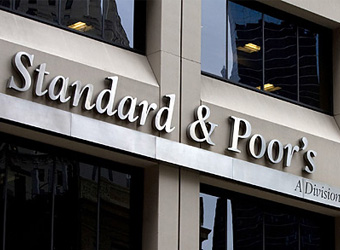Standard & Poor’s Ratings Services kept its credit rating for Egypt unchanged, after Gulf states pledged billions to support the post-coup government in Cairo.
Kuwait, Saudi Arabia and the UAE have recently announced they will provide Egypt with $12 billion, amounting to 4.4% of the country’s 2013 gross domestic product, in cash, interest-free loans, oil, and oil products to reduce the likelihood that Egypt will face a balance-of-payments crisis, according to Financial Times.
S&P, which affirmed the country’s rating seven levels into junk territory at triple-C-plus, said the ad hoc funding reduces balance-of-payments pressures and allows officials time to address the political and economic challenges facing Egypt. The outlook is stable.
The country’s rating reflects its high political, external, fiscal and other economic risks, which are partially mitigated by moderate foreign currency debt obligations and expectations that external financial support will be sufficient and timely enough to avoid default.
Egypt’s military intervened earlier this month to oust the Muslim Brotherhood, led by President Mohammed Morsi, from power. The Muslim Brotherhood has since led demonstrations against the ouster.
S&P said Tuesday its view of Egypt’s creditworthiness has not changed since Mr. Morsi’s removal from power. It said the Muslim Brotherhood’s political arm, the Freedom and Justice Party, continues to have considerable and well-organized political support in the country, though its involvement in the short-term political process is uncertain. It expects Egypt’s high level of political tension to persist and policymaking, at least in the short-term, to remain insufficient to address the country’s weak external position and wide fiscal deficit, absent bilateral donor flows.
S&P had lowered the country’s rating to triple-C-plus in May, citing a deterioration in the likelihood of Egyptian authorities meeting their fiscal targets.


